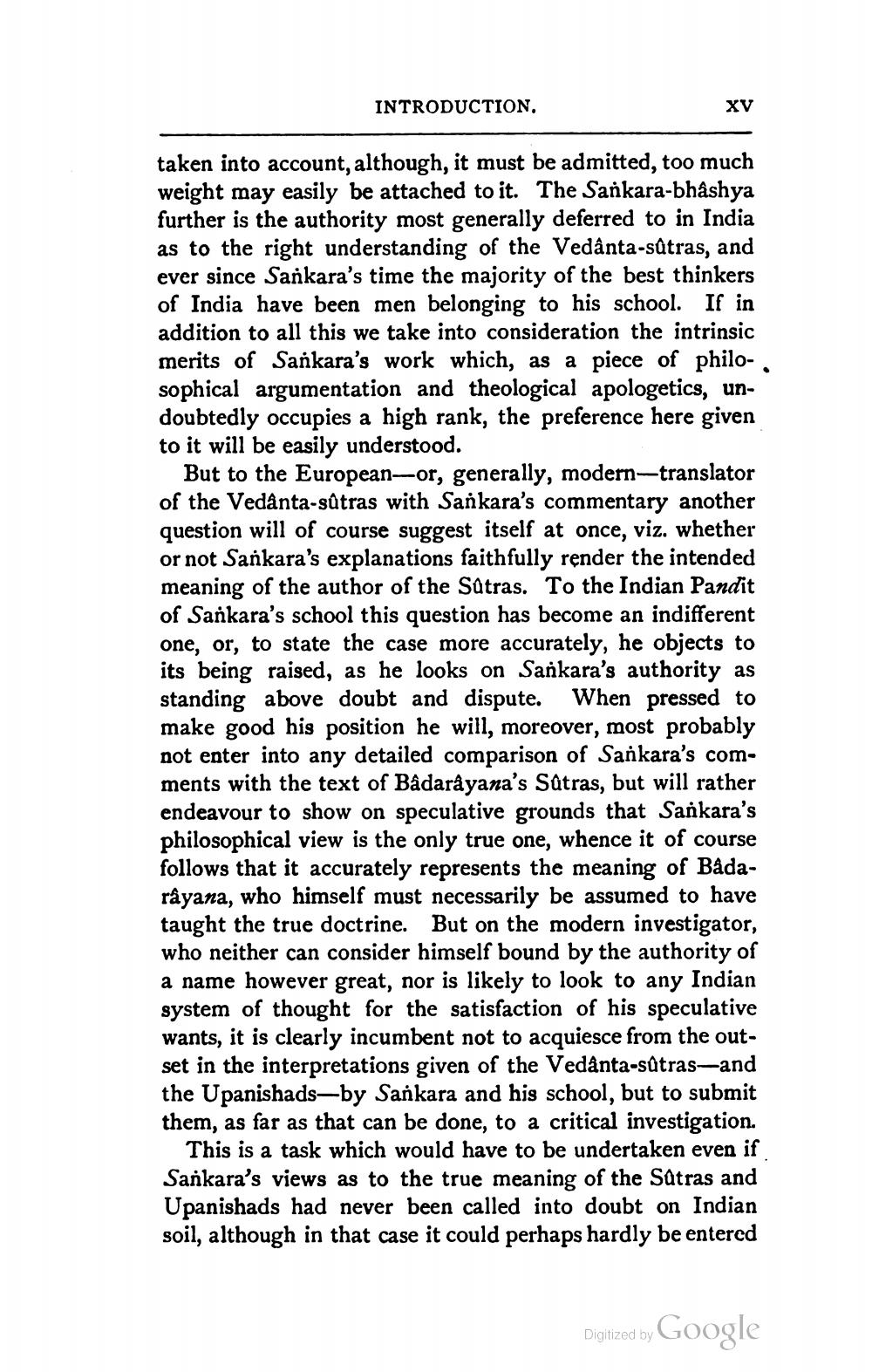________________
INTRODUCTION.
XV
taken into account, although, it must be admitted, too much weight may easily be attached to it. The Sankara-bhâshya further is the authority most generally deferred to in India as to the right understanding of the Vedanta-sätras, and ever since Sarkara's time the majority of the best thinkers of India have been men belonging to his school. If in addition to all this we take into consideration the intrinsic merits of Sankara's work which, as a piece of philosophical argumentation and theological apologetics, undoubtedly occupies a high rank, the preference here given to it will be easily understood.
But to the European-or, generally, modern-translator of the Vedanta-sútras with Sankara's commentary another question will of course suggest itself at once, viz. whether or not Sankara's explanations faithfully render the intended meaning of the author of the Satras. To the Indian Pandit of Sankara's school this question has become an indifferent one, or, to state the case more accurately, he objects to its being raised, as he looks on Sankara's authority as standing above doubt and dispute. When pressed to make good his position he will, moreover, most probably not enter into any detailed comparison of Sankara's comments with the text of Bådarayana's Sätras, but will rather endeavour to show on speculative grounds that Sankara's philosophical view is the only true one, whence it of course follows that it accurately represents the meaning of Bådarayana, who himself must necessarily be assumed to have taught the true doctrine. But on the modern investigator, who neither can consider himself bound by the authority of a name however great, nor is likely to look to any Indian system of thought for the satisfaction of his speculative wants, it is clearly incumbent not to acquiesce from the outset in the interpretations given of the Vedanta-sútras—and the Upanishads—by Sankara and his school, but to submit them, as far as that can be done, to a critical investigation.
This is a task which would have to be undertaken even if Sankara's views as to the true meaning of the Satras and Upanishads had never been called into doubt on Indian soil, although in that case it could perhaps hardly be entered
Digitized by Google




